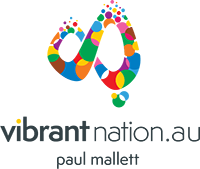thinking tool.
The one about authentic engagement with citizens to solve problems
Citizen Science and Social Labs
Summary:
Citizen science is the practice of everyday people — not just trained scientists — gathering data, observing nature, and contributing to real research. From tracking local wildlife to measuring air quality or mapping climate impacts, citizen science taps into the curiosity and local knowledge of communities, turning ordinary people into vital contributors to discoveries that shape policy, conservation, and innovation. It’s science done with people, not just for people.
Social labs are experimental spaces where diverse groups — citizens, experts, businesses, and governments — come together to tackle complex social challenges in new ways. Unlike traditional top-down solutions, social labs test, adapt, and co-create ideas in real-time, putting people’s lived experiences at the center. They turn big problems into collective experiments for practical change.
Benefits: Bringing communities into problem-solving builds trust, unlocks local insights, spreads knowledge, and creates solutions people actually believe in and own. In an age of complex crises — climate, inequality, health — we can’t afford spectators; we need everyone as co-designers of the future. Both citizen science and social labs show how giving people real agency — as co-researchers and co-designers — creates better data, smarter solutions, and stronger trust in the results.
Real World Example of Citizen Science:
Safecast – Japan
After the 2011 Fukushima nuclear disaster, residents built Safecast to crowdsource local radiation measurements. It became a trusted global map of radiation levels, showing how communities can fill critical data gaps quickly and transparently.
CoastSnap – Australia
Public beachgoers take repeat photos from fixed stands and upload them to track coastal erosion and shoreline change. Coastal managers use the data to plan climate adaptation.
Real World Examples of Social Labs:
Alberta CoLab – Canada
This government-run social lab helped tackle wicked policy problems — like energy transition and social housing — by bringing together diverse stakeholders to prototype solutions. It changed how Alberta’s public service approaches complex challenges.
MaRS Solutions Lab – Canada
Part of the MaRS Discovery District in Toronto, it convenes citizens, businesses, and policymakers to co-create practical solutions to social issues like income security, urban mobility, and affordable housing.
Helsinki Design Lab – Finland
An early pioneer in using design thinking as a social lab approach. They ran experiments with citizens and government on urban design, sustainability, and service delivery, influencing Finland’s innovative public sector culture.
MindLab – Denmark
One of the best-known government social labs (now closed, but highly influential). It brought citizens and civil servants together to reimagine public services — improving outcomes in employment, tax, and business regulation. It inspired similar labs worldwide.

